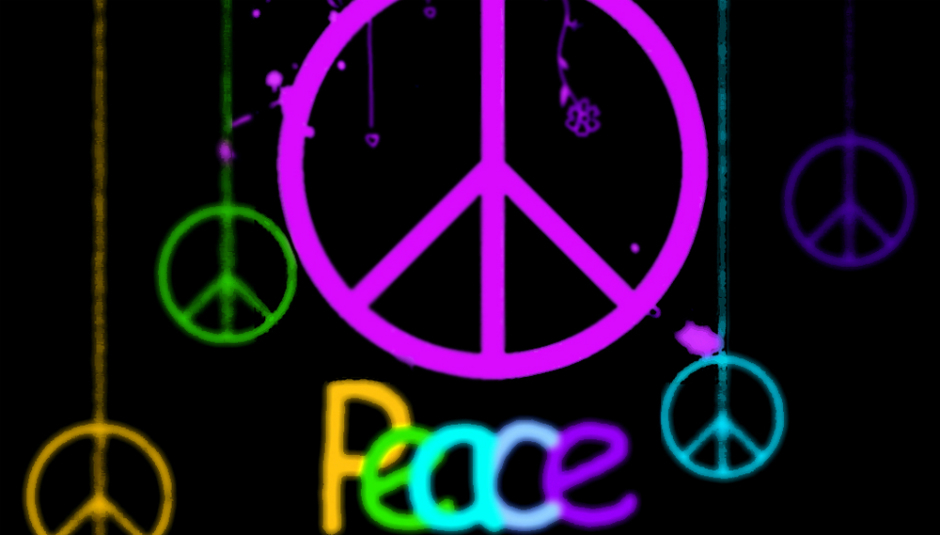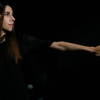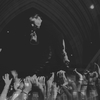“MOVEMENT” is a charity gig happening in Manchester on Friday 16th December (that’s tonight! – Ed) and it’s just about as grassroots as they come. The organisers, two women called Charlie and Katy from Social Workers Without Borders, had the idea while working in Calais, inspired by the grassroots movements they were working with helping refugees on the frontline. And while it’d be a stretch to call it the antidote to a year so shit it’s collapsed into its own meme, it’s certainly a start. The bands being featured make up a lineup with fairly wide indie-appeal, and all the musicians, the organisers, and the artists who’ve made the posters for the event are all mates.
We chatted to Charlie about her and Katy’s time in Calais with Social Workers Without Borders, and their mobilisation of this benefit.
DiS: Let’s start at the beginning. What’s the origin story of Movement?
The whole story? Katy and I belong to an organisation called Social Workers without Borders. We finished our MAs in September, and in October we went to Calais. When we got there, it seemed like the smaller organisations knew more what was going on and were more interested in the refugees who were there as individuals. Part of social work is keeping the humanity and dignity of the people you’re working with. We felt like the big organisations who get a lot of the funding were just firefighting, and we wanted to raise money for the smaller charities because the projects are a lot smaller, they’re not just about giving people a sleeping bag and a tent. A lot of the people there have mental illnesses as a result of their journeys or frustrations of being there. So projects that do stuff like make the camps nicer, schools, community centres, to preserve that humanity, to keep the people who have to live in those camps feeling like they’re people. So the charities we decided to give to, the first one is, a lady who we know who does enrichment activities in Greece in Samos. Art projects, stuff about the environment, works with women...she just makes more of a community, to make the camp feels like it’s a home, rather than a holding place.
So the emphasis is on humanity, grassroots action, rather than just fighting the fires?
Yeah, she actually was one of the founders Calais Action and she’s since gone to Greece and started doing this work in the camps there.
The other one is a charity that tops up the phones of unaccompanied children. One of the big things was, there was nothing holding children there, they could just go, if they wanted to, and it was hard for organisations to stay in contact with them, and for them to stay in contact with their families. So big charities like Help Refugees and Save The Children clubbed together and got them all a smartphone, and this charity tops them up so they can stay in contact wherever they are. It means if they’re not safe they’ve got someone to contact, we can see where they are, hear, etc. So it’s a practical way to help, but obviously it’s not just for that. We’re saying, you can speak to your families, you have this phone, you’re a bit more of a human being.
If we make enough we’ll give some to Social Workers Without Borders as well. They’re doing a lot of the work the government should be doing in terms of respecting refugees, helping them get into communities, hearing their voices, so the word’s coming from them as opposed to that kind of top-down dictating of what should be done.
That sounds important for combating this image of refugees being no more than refugees, of not really being people with pasts and lives.
Well it’s called othering. If you manage to separate a group of people from being “Like you” then it doesn't matter how you treat them. We’re even a bit hesitant about using the collective term “refugees”, as opposed to “people who are living in the camps”, because as soon as you give them a label, you can say “these people don’t deserve the same standard of life, they don’t need what I need”. Their basic and psychological needs are exactly the same. But the media’s very good at being like “These people are separate, they shouldn’t be allowed here”. A big thing was when the media was like “they’re not children, they look 25”. It was horrific. One of the boys we’d spoken to had seen two of his mates be killed in Libya, and then travelled all the way to Calais. You’re not going to look like 14 if you’ve been sleeping rough for a year. You’re not going to have the mentality of a 14 year old if you’ve seen three of your mates die.
It can lead to layers of shit to fight against as well: firstly you’re dealing with people’s childhoods effectively having been stolen from them, and then the horrible question of “at what age do you stop deserving refuge”?
They wanted us to do age assessments on these children. We were like a) we’re not trained to do that and b) we feel really uncomfortable, not least because if we get it wrong, we’d be stepping around the lines of whether someone should be allowed to be safe or not. We don’t feel comfortable being involved in that process.
I really like that there’s work being done for these people’s mental health as well, because like you say, when you dehumanise a group of people it’s easy to forget they have needs like ones relating to mental health.
Yeah. Well we aren’t mental health social workers, but from our basic knowledge of it, it was obvious that some of them had PTSD because of what they’d seen, lots had depression, lots had anxiety about their situation. There were a lot of boys of 14-15 who were saying they couldn’t leave their tent because they felt lonely. They didn’t sleep properly. If your basic needs aren’t being met then you don’t feel like you have any control over your future, so of course you have psychological needs as well.
A difficulty with a lot of mental health treatments is that their aim is to make you “realise” you have nothing to worry about or be sad about. For the people in these camps, that just isn’t the case. It must be hard knowing what to tell people whose severe depression and anxiety are perfectly reasonable responses to their situation.
Exactly. They feel completely out of control of their future, they’re jumping on lorries and risk their lives trying to get here. If they get caught they get beat up by the French police, that happens all the time. And if you go to the doctor’s with mental health issues they often say “get enough sleep, make sure you’re doing things for yourself”. You can’t do self care. You don’t feel safe enough to go to sleep. The basics of starting to feel well, and you can’t achieve them. So part of what Pru [the woman leading the first initiative] does in Greece with her enrichment work is stimulation of a creative side, a learning side, and a feeling like you’re doing something more for yourself. It seems really basic but it’s vital.
I think it can be easy for people distanced from that reality to assume that’s almost frivolous when in fact it’s that kind of thing that gives you a sense of normalcy, of humanity, of dignity, of there being something to live for. What made you choose a gig as your main fundraiser?
We all know all the bands that are playing, so it’s a bit arrogant to assume but we sort of knew we could get them to play for free. And Best Friends and Aldous RH and Gorgeous Bully are all quite well known in Manchester, so we knew they’d get a crowd. And Easy Kill are starting to make a bit more of a name for themselves too, and I’ve lived with them so I knew they were great. So we basically just asked them and they were like “yep”. They were all really keen and they’ve been really helpful with the logistical stuff as well, as I’ve never done anything like this before. So we were lucky to be in friendship groups where most of us knew people who’d be willing to help. And there are a few donating merch, we’re gonna do a raffle, all the posters were done by friends of ours who are artists. It’s been very Manchester-community-put-together.
Would you be planning to do a series of gigs? Maybe make this a semi-regular thing?
I don’t know, Katy’s moving away, and I’m trying to get a social work job. It just depends on whether we can find bands to do it again. A lot of our thing is about hearing refugee voices, so if we did another it might not necessarily be bands, it might be about getting guest speakers, or charities who do that work. Because it’s meant to be fundraising but also awareness-raising.
It must be good for enthusiasm for the cause to do band gigs, speaker events etc, where people actively go to the thing, and listen to people speak, and participate by being there, and then come out of it feeling energised and motivated.
Yeah, that’s the point of it really. People share a lot of stuff on fb, are very social-media-active about a cause, and they’ll talk about it in the pub, but often no-one really does anything. So we thought, we’re in a position whereby we know bands who can play, we’ve got the info to share, and it’d be nice to end our experience with us trying to make a difference.
It does seem a good alternative to clicktivism that still doesn’t ask too much of people. Often with stuff like this people can feel really helpless, when there’s crises this huge.
Yeah, and one of the charities we’ve chosen to donate to can be donated to by text as well. Me and Katy were so lucky that we had the time to take out. We were both financially lucky and time-wise too, whereas a lot of people can’t take the time out to go help out on the frontline. And the point of is was always to have a grassroots, local feel. There’s a real sense of “clubbing together”, loads of different people have put a little bit into it.
"Movement" is night of fund and awareness raising for people affected by border violence organised by Social Workers Without Borders, Movement 16/12/16 showcases four local acts who have come together and given their time in solidarity with refugees and asylum seekers.
This Movement show protests the lack of support for vulnerable people across the globe, and proceeds from work on sale created by local artists will be donated to grassroots charities working to preserve the humanity of refugees.
The Deaf Institute, Grosvenor St / thedeafinstitute.co.uk / 0161 276 9350 / Dec 16 / 7pm / £6 / @DeafInstitute






















